Related Research Articles

John Ruskin was an English writer, philosopher, art critic and polymath of the Victorian era. He wrote on subjects as varied as geology, architecture, myth, ornithology, literature, education, botany and political economy.

Euphemia Chalmers Millais, Lady Millais was a Scottish artists' model and the wife of Pre-Raphaelite painter John Everett Millais. She had previously been married to the art critic John Ruskin, but she left him with the marriage never having been consummated; it was subsequently annulled. This famous Victorian "love triangle" has been dramatised in plays, films, and an opera.
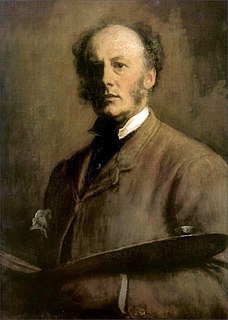
Sir John Everett Millais, 1st Baronet, was an English painter and illustrator who was one of the founders of the Pre-Raphaelite Brotherhood. He was a child prodigy who, aged eleven, became the youngest student to enter the Royal Academy Schools. The Pre-Raphaelite Brotherhood was founded at his family home in London, at 83 Gower Street. Millais became the most famous exponent of the style, his painting Christ in the House of His Parents (1849–50) generating considerable controversy, and he produced a picture that could serve as the embodiment of the historical and naturalist focus of the group, Ophelia, in 1851–52.

Prizzi's Honor is a 1985 American black comedy crime film directed by John Huston, starring Jack Nicholson and Kathleen Turner as two highly-skilled mob assassins who, after falling in love, are hired to kill each other. The screenplay co-written by Richard Condon is based on his 1982 novel of the same name. The film's supporting cast includes Anjelica Huston, Robert Loggia, John Randolph, CCH Pounder, Lawrence Tierney, and William Hickey. Stanley Tucci appears in a minor role, his film debut. It was the last of John Huston's films to be released during his lifetime.

The phrase pathetic fallacy is a literary term for the attribution of human emotion and conduct to things found in nature that are not human. It is a kind of personification that occurs in poetic descriptions, when, for example, clouds seem sullen, when leaves dance, or when rocks seem indifferent. The British cultural critic John Ruskin coined the term in Volume 3 of his work, Modern Painters (1856).

The Ruskin - Library, Museum and Research Centre is an archive, Accredited Museum, and research centre at University of Lancaster, in the north of England. The Director of The Ruskin is Professor Sandra Kemp. Prior to 2019, The Ruskin - Library, Museum and Research Centre was known as the Ruskin Library.
Ruskin Bond is an Anglo Indian author. His first novel, The Room on the Roof, was published in 1956, and it received the John Llewellyn Rhys Prize in 1957. Bond has authored more than 500 short stories, essays, and novels, including 64 books for children. He was awarded the Sahitya Akademi Award in 1992 for Our Trees Still Grow in Dehra. He was awarded the Padma Shri in 1999 and Padma Bhushan in 2014. He lives with his adopted family in Landour, Mussoorie.

The Guild of St George is a charitable Education Trust, based in England but with a worldwide membership, which tries to uphold the values and put into practice the ideas of its founder, John Ruskin (1819–1900).
Modern Painters (1843–1860) is a five-volume work by the Victorian art critic, John Ruskin, begun when he was 24 years old based on material collected in Switzerland in 1842. Ruskin argues that recent painters emerging from the tradition of the picturesque are superior in the art of landscape to the old masters. The book was primarily written as a defense of the later work of J. M. W. Turner. Ruskin used the book to argue that art should devote itself to the accurate documentation of nature. In Ruskin's view, Turner had developed from early detailed documentation of nature to a later more profound insight into natural forces and atmospheric effects. In this way, Modern Painters reflects "Landscape and Portrait-Painting" (1829) in The Yankee by American art critic John Neal by distinguishing between "things seen by the artist" and "things as they are".

Peace Concluded, 1856 (1856) is a painting by John Everett Millais which depicts a wounded British officer reading The Times newspaper's report of the end of the Crimean War. It was exhibited at the Royal Academy in 1856 to mixed reviews, but was strongly endorsed by the critic John Ruskin who proclaimed that in the future it would be recognised as "among the world's best masterpieces". The central figure in the painting is a portrait of Millais's wife Effie Gray, who had previously been married to Ruskin. It is now in the Minneapolis Institute of Arts.

Saint-Gilles is a commune in the Manche department in Normandy in north-western France. In 1848 John Ruskin and his new wife, the former Effie Gray, visited St Gilles. Ruskin noted "The Church of Saint Giles has some remarkable examples of the final stage of transition from flamboyant to Renaissance".
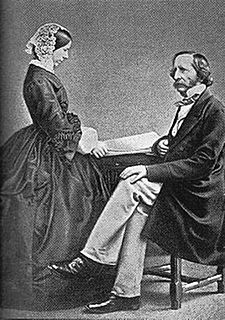
Pauline, Lady Trevelyan was an English painter, noted for single-handedly making Wallington Hall in Northumberland a centre of High Victorian cultural life, and for enchanting by her intellect and art John Ruskin, Swinburne, Elizabeth Barrett Browning, Robert Browning, Christina Rossetti, Dante Gabriel Rossetti, William Michael Rossetti, Thomas Carlyle, John Everett Millais, and other members of the Pre-Raphaelite Brotherhood. She was married in May 1835 to Sir Walter Calverley Trevelyan, 6th Baronet.
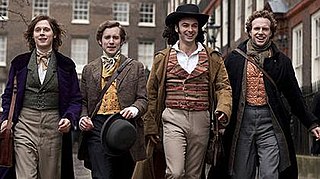
Desperate Romantics is a six-part television drama serial about the Pre-Raphaelite Brotherhood, first broadcast on BBC Two between 21 July and 25 August 2009.
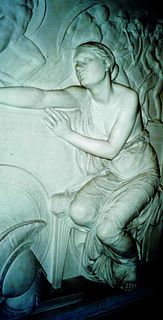
Virgilia is the wife of Coriolanus in William Shakespeare's play Coriolanus (1607–1610), in which same play Volumnia is his mother.

Sophia Margaret "Sophie" Gray, later Sophia Margaret Caird, was a Scottish model for her brother-in-law, the Pre-Raphaelite painter John Everett Millais. She was a younger sister of Euphemia "Effie" Gray, who married Millais in 1855 after the annulment of her marriage to John Ruskin. The spelling of her name was, after around 1861, sometimes "Sophy," but only within the family. In public she was known as Sophie and later in life, after her marriage, as Sophia.
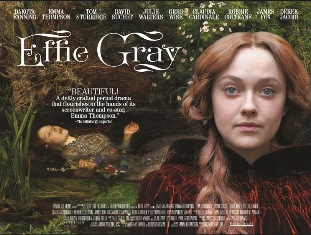
Effie Gray is a 2014 British biographical film written by Emma Thompson and directed by Richard Laxton, starring Dakota Fanning, Emma Thompson, Julie Walters, David Suchet, Derek Jacobi, James Fox, Robbie Coltrane, Claudia Cardinale, Greg Wise, and Tom Sturridge. It is based on the true story of John Ruskin's marriage to Euphemia Gray and the subsequent annulment of their marriage.

Bad Guy is a 1937 American crime film directed by Edward L. Cahn and written by Earl Felton and Harry Ruskin. The film stars Bruce Cabot, Virginia Grey, Edward Norris, Jean Chatburn and Cliff Edwards. It was released on August 27, 1937 by Metro-Goldwyn-Mayer.
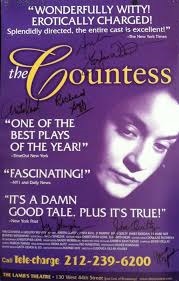
The Countess is a play written by the American playwright and novelist Gregory Murphy. It recounts the break-up of the marriage of John Ruskin and Effie Gray, one of the greatest scandals of the Victorian era in Britain.
Suzanne Fagence Cooper is a British non-fiction writer who has written extensively on the Pre-Raphaelites and Victorian women.
